You're likely familiar with storage auctions from the show Storage Wars, where bidders compete in a storage unit auction packed with hidden surprises.
For bargain hunters, resellers, or those simply curious, these events offer the chance to bid on the contents of abandoned storage units.
As the UK self-storage industry grows beyond £1.2 billion a year, more units are entering the market, and more are ending up at auction.
While a storage auction doesn't guarantee a hefty fortune, with careful prep, you have a good chance of making a decent profit.
Key Takeaways
Units go to auction when rent isn’t paid; sold as a whole
Online auctions are most common via sites like iBidOnStorage
You can only see photos taken from the doorway; no touching or entry allowed
Winners usually have 24–48 hours to clear the unit
Some auctions uncover cash, vintage games, rare items
HOLD doesn't run storage auctions; our partner Keeper's Cottage manages the process. However, if you need secure, 24-hour access self storage in London, we can help.
What is a storage auction?
Storage units in the UK are often put up for auction when a customer defaults on paying their bills. When someone stops paying for a storage unit, the contents may be auctioned off to clear the space.
They typically involve abandoned storage units, helping facilities recover costs and free up space for new customers.
They're only held after multiple attempts to contact the renter have failed.
Units are sold as a whole, and bidders cannot buy individual items.
What types of storage auctions are there in the UK?
There are two types of storage auctions in the UK: In-person and online. Each has its own benefits, depending on your bidding style and availability.
Online storage auctions
In the UK, most self storage auctions take place online. Platforms like iBidOnStorage host listings on behalf of storage companies.
Before bidding, buyers typically see a small set of photos of the unit, usually taken from the doorway and different angles. This follows a strict ‘look but don’t touch’ policy.
Benefits
When bidding online, you can take more time to assess photos and compare listings before placing your maximum bid.
You can take part from anywhere, without needing to travel to the storage lot.
An online storage auction lets you enter your max bid in advance so the system bids automatically up to that amount.
Online storage often offer more listings, giving you a wider choice of units.
An online auction lets you buy the contents of abandoned storage units without needing to travel.
In person storage auctions
These are less common in the UK and typically occur when various units are being cleared simultaneously. They let you visit the storage lot, view the units from outside, and place live bids directly at the storage facility.
Some in-person auctions accept cash only, so check the payment rules before attending.
Benefits
You can see the storage units with your own eyes, which may help spot hidden treasures lurking in the back.
Live bidding can be faster and more exciting than waiting for online deadlines.
Attending in person may provide access to private or local auctions that are not listed online.
How do I find upcoming storage unit auctions?
Most storage companies use online auction houses to list abandoned storage units and share details like size and contents. But don’t stop there; try these extra steps to find more auctions:
Contact storage providers in your local area about upcoming listings
Join social media groups, forums, or mailing lists
Check local newspapers or noticeboards for announcements
Some providers list auctions on eBay, so follow those accounts for early access
Top tip: Smaller providers may run their own private auctions, not listed on major sites; stay alert to catch these hidden opportunities.
Online storage auction platforms in the UK
Platform | How it works | Best for |
|---|---|---|
UK storage auction site; view photos and bid online on full units. | Regular UK bidders wanting a specialist platform. | |
Online auctions for abandoned storage rooms run on a dedicated UK platform. | Buyers and operators wanting a simple UK site. | |
App-led live storage auctions with real-time bidding. | People who like live, mobile auction bidding. | |
Managed clearance service that uses online auctions to sell abandoned room contents. | Storage operators needing a fully managed clearance and auction service. | |
General marketplace with occasional full storage contents listings. | Casual buyers after one off clearance deals. |
How the storage auction process works
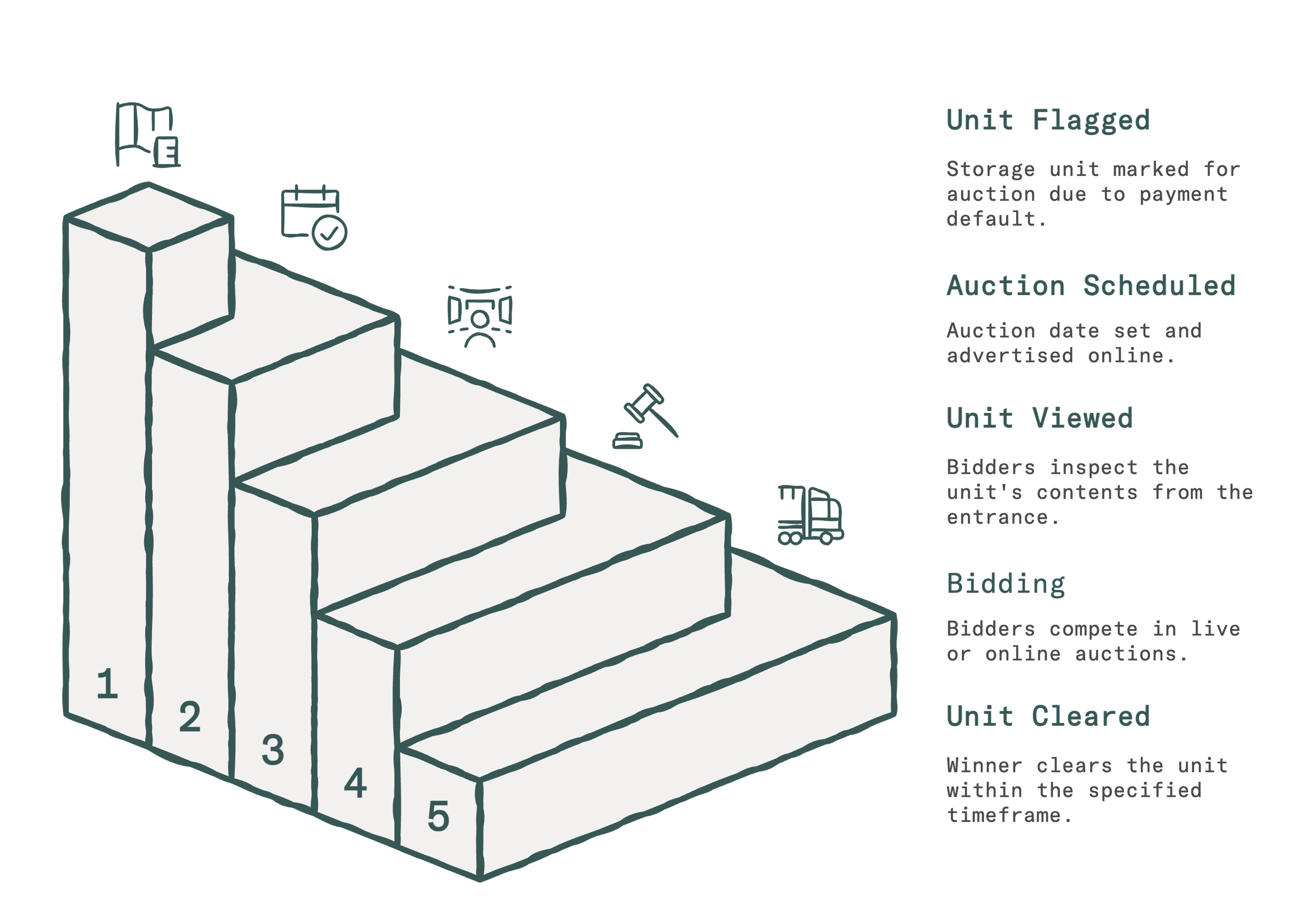
Understanding the storage auction process can help you bid more confidently and avoid common pitfalls. Here's what to expect at each stage:
1. Self storage units are flagged for auction
Storage auctions usually happen when a customer defaults on payments. The storage facility will first try to contact the renter and settle the account. If those efforts fail, the unit is marked as abandoned.
Under UK law, storage companies have a legal right (known as a lien) to sell the contents to recover unpaid rent, but only after giving proper notice and a grace period to pay.
Some storage providers use auction houses to manage larger or in-person sales. Each facility sets its own rules on timing, fees and accepted payment methods.
2. Auctions are scheduled and advertised
Once a unit is ready to be auctioned, the storage provider sets a date and advertises it. Most UK storage companies use online platforms for convenience and reach.
Some may also list auctions through their own websites, mailing lists, or local networks.
3. Units are viewed before bidding
Whether an online or in person, self storage units are offered under a “look but don’t touch” policy. Bidders are usually shown photos taken from the entrance (and sometimes extra angles), but you won’t be able to enter the unit or inspect individual items.
Remember to focus on packaging, visible item types, and how neatly the unit is arranged to assess potential value.
4. Bidding at live and online auctions
Online storage unit auctions are the most common in the UK. These let you place bids over several days, giving you time to research, compare listings, and enter your max bid in advance. When bidding ends, the top bidder secures the entire unit.
In-person auctions involve live, fast-paced bidding at the storage facility. Like online auctions, the winner takes ownership of all the items inside the self storage unit.
Remember, only the highest bidder at a storage auction can acquire the entire contents of a unit, not individual items.
5. What happens after you win?
Some providers require you to clear self storage units quickly, often within just 24 to 48 hours. If you are late, the storage facility may charge additional fees or daily rent.
Most auctions accept card or bank transfer, but always check the payment terms before you bid.
If you plan to leave the unit in between collections, confirm with the storage facility to avoid any penalties or access issues.
Winning a storage unit auction means taking responsibility for everything inside, so factor in transport, time limits, and disposal costs in advance. It’s better to be over-prepared than stuck clearing a unit halfway to the deadline without help or a vehicle.
What do I need to bring to self storage auctions?
For online auctions:
Registered account on the auction platform
Valid payment method
Transport plan and packing supplies
Way to track deadlines and bidding history
For in-person auctions:
Photo ID for registration
Cash or card (depending on the auction’s terms)
A torch to view darker corners of the unit
Gloves or protective gear for clearing contents
A van or large vehicle (this can save you making multiple trips and helps ensure you clear the unit on time.)
A printed copy of the auction rules
A padlock in case you need to secure the unit in between collections
5 Tips for first-time bidders
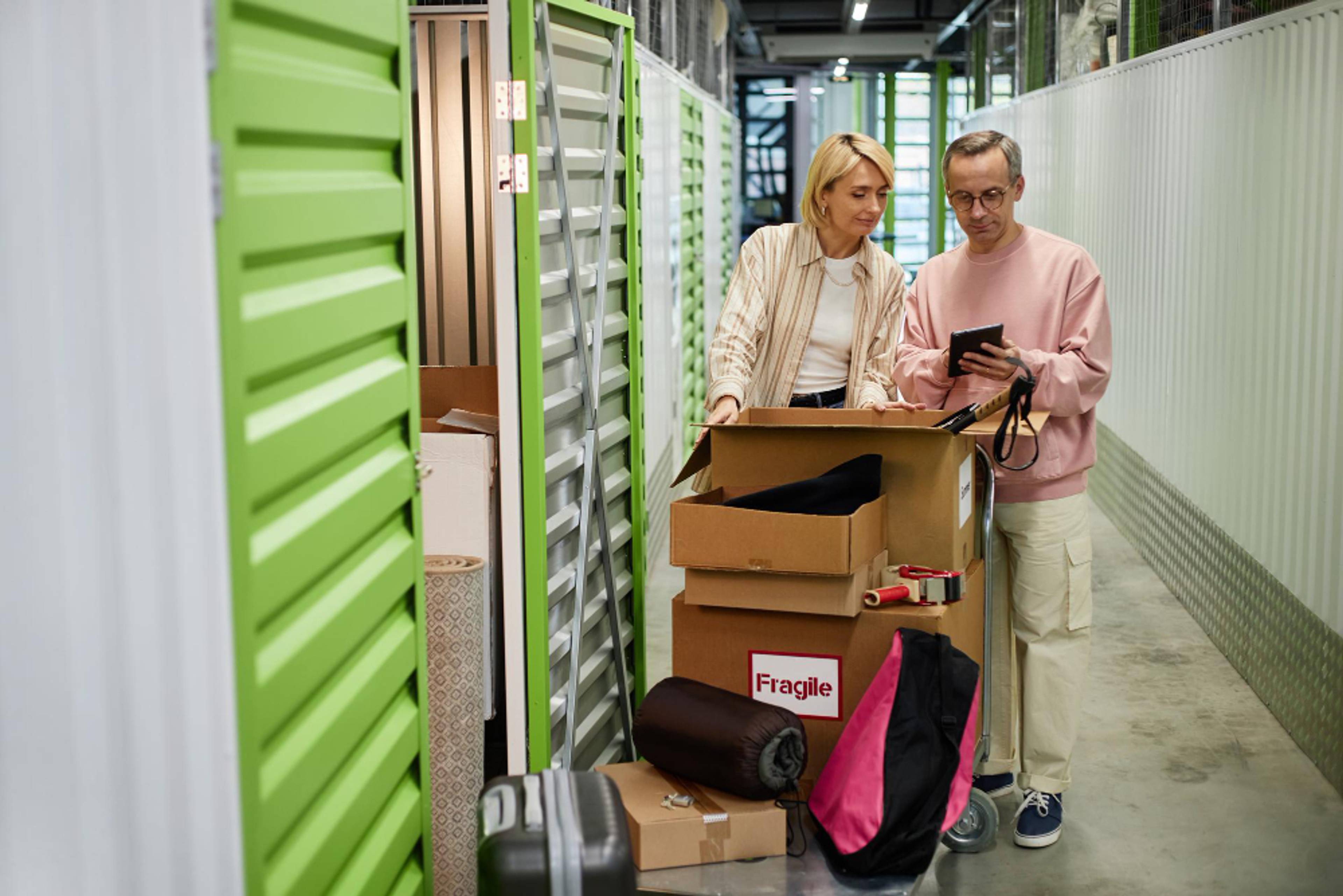
Self storage auctions don't have to be a huge gamble like you see on Storage Wars. Use these tips to avoid surprises:
1. Set a budget before you bid
Storage auctions can move quickly, especially in live settings. Set a clear maximum bid and stick to it. In other words, set yourself a price limit before bidding begins.
Getting caught in a bidding war can lead to overpaying for a unit that isn't worth the cost.
2. Understand what you might find
An abandonded self storage unit usually contains household items. However, you can discover hidden treasures like vintage console hardware, valuable items, or collectable memorabilia.
Top tip: Make sure to research typical auction finds and resale values so you can estimate potential profit.
3. Know how to inspect what you’re bidding on
You can’t touch anything in the unit, but there are clues you can look for:
Check for sturdy boxes or labelled containers
Look at how neatly the unit is packed
Use a torch to get a better look in darker corners of the photo
Spot signs of commercial stock or sealed items
4. Avoid common mistakes
Don’t assume everything in the unit is valuable
Watch out for broken furniture, old mattresses, or water damage
Avoid overbidding on emotional impulse
Choose storage auctions that are conveniently located. Factoring in travel time and transport costs will save you stress and money.
5. Be ready to remove everything fast
If you win, you’ll usually have 24 to 48 hours to clear your new self storage unit and remove all items. This means bringing boxes, tools, and transport. Some storage facilities charge rent or interest if you’re late, so be prepared.
Some of the best advice comes from those who’ve done it before. Many successful buyers share their finds and strategies online.
What could I win at a storage auction?
Every storage unit is a mystery, and that’s part of the exciting prospect. While not every lot is packed with valuables, buyers often find items worth keeping, reselling, or restoring. Here’s what you might uncover:
Vintage games and consoles
Antiques or collectables
Designer clothing or accessories
Tools and electronics
Furniture or homeware
Business stock or sealed items
Cash or hidden valuables (rare, but possible)
Most units contain everyday items, but the surprise is part of the appeal.
Check out Abandoned Storage Units UK on YouTube for a realistic look at UK storage finds.
Famous storage auction finds
While most storage units contain household items, there are occasionally hidden gems lurking in the back that surprise even seasoned buyers. Some of the wildest finds rival scenes from Storage Wars. Who knows? Maybe you'll be uncovering valuable treasures at your next storage unit auction!
Around £6 million found in cash safe
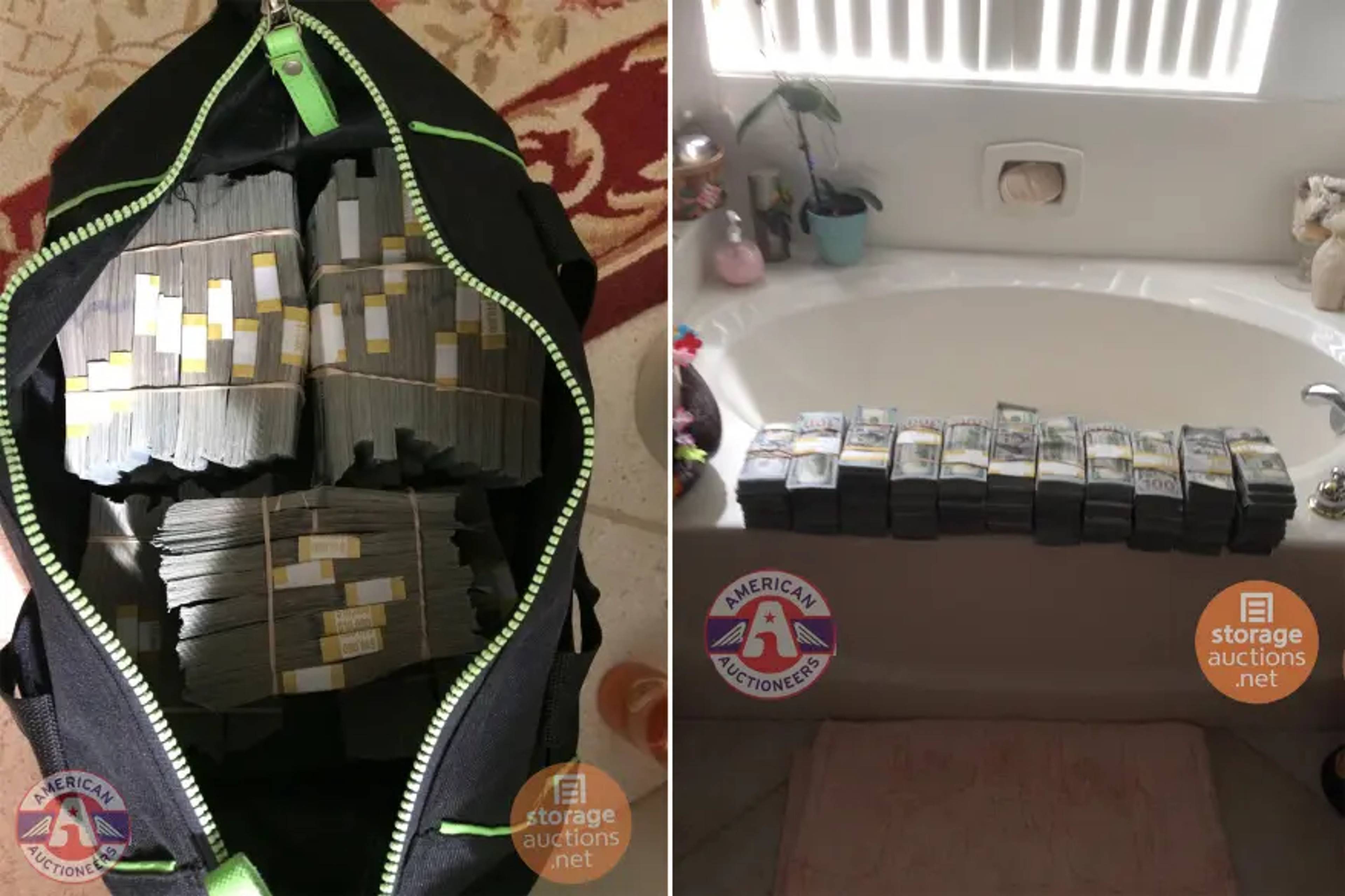
In 2018, a buyer purchased a unit from Storage Wars star Dan Dotson for just $500. He discovered a safe inside containing over $7.5 million in cash. He later returned most of it to the original owners after a reward agreement was made.
Classic video games treasure
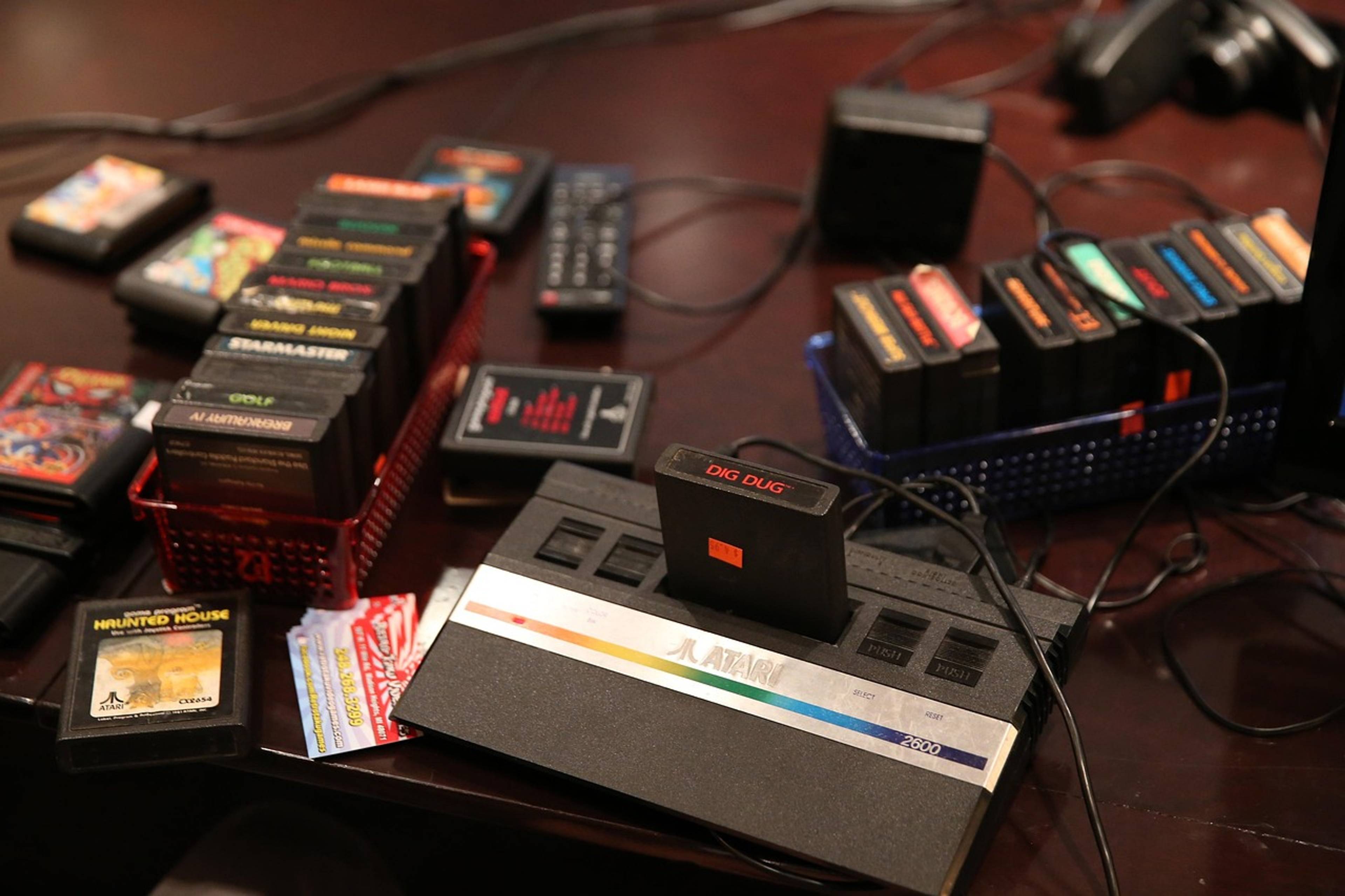
digitalskennedy from Pixabay
A storage unit purchased by a California man contained vintage game consoles and cartridges later valued at over £40,000.
Amelia Earhart photographs

AP Photo/Ben Margot
In 2011, a California buyer uncovered a collection of original photographs of Amelia Earhart. Each print was later valued at approximately £614.
Porcelain “holy grail” find
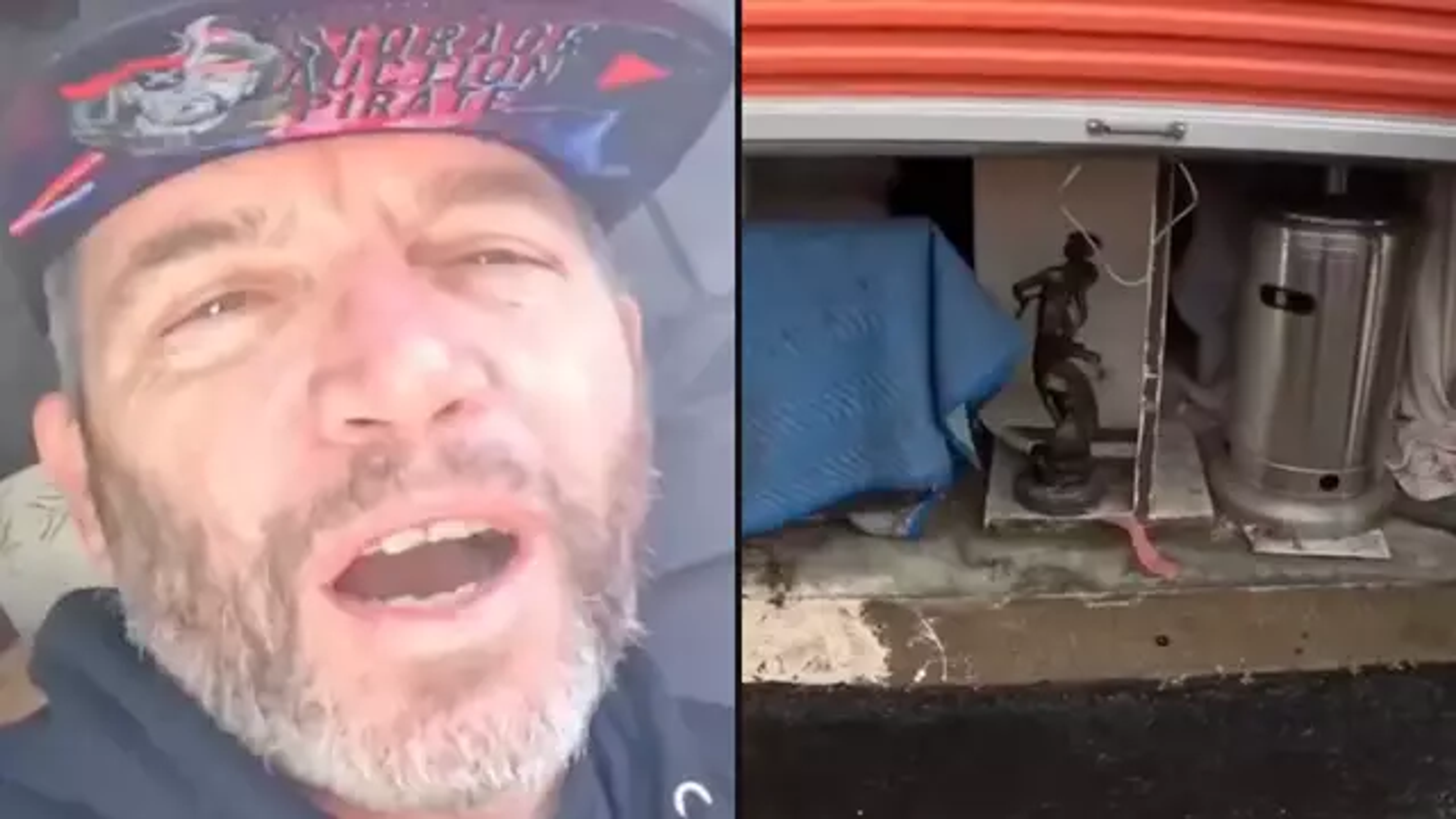
TikTok/@storagepirate
At a UK in-person storage auction, a buyer discovered a unit filled with rare porcelain pieces. One item alone was later appraised at around £31,000.
Superb self storage with HOLD
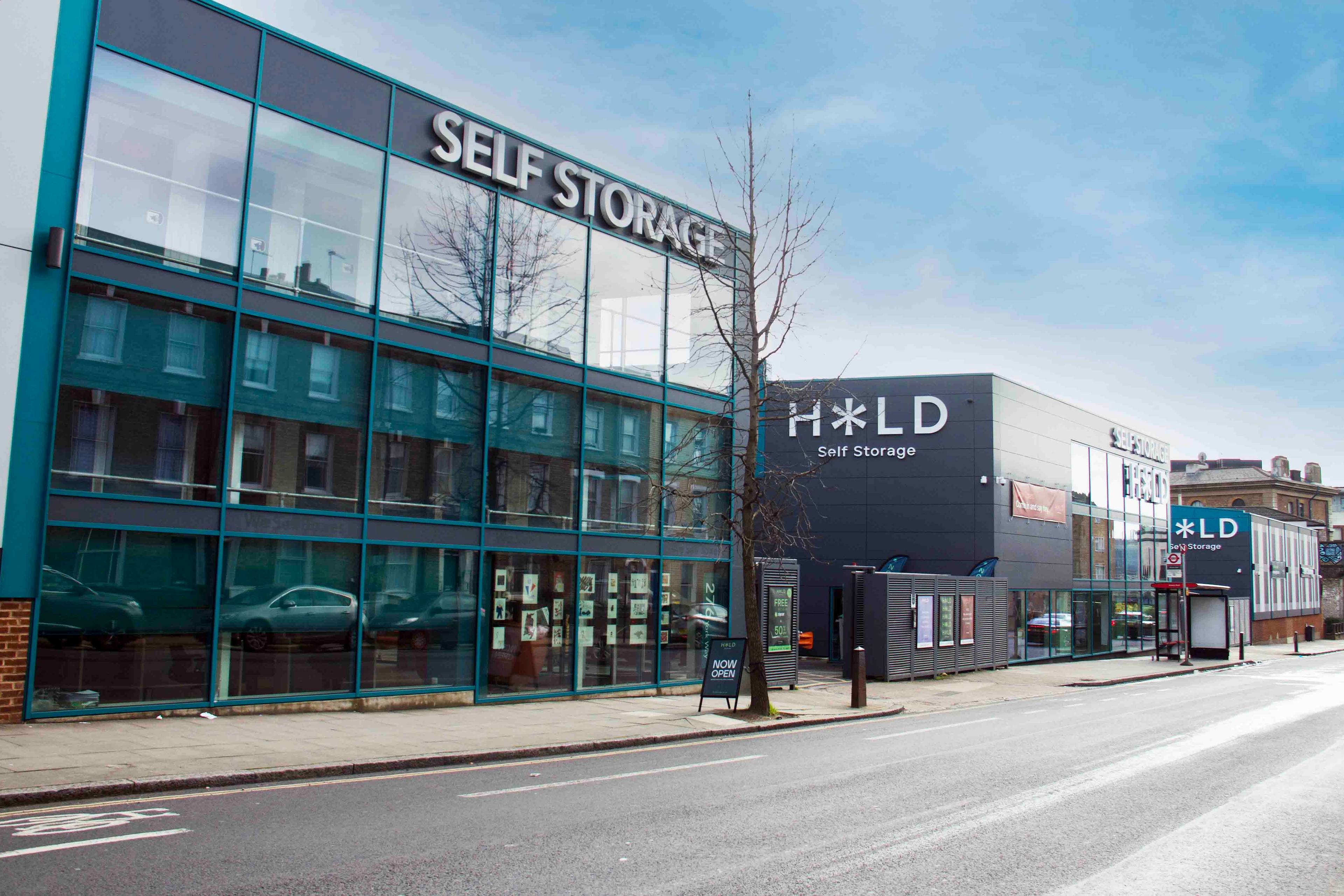
Need secure storage for your precious finds? HOLD Self Storage can help. Whether you're storing auction wins or decluttering your home, our next-gen facility offers 24/7 access, top security, and flexible terms to suit you.
While we don’t run auctions ourselves, our trusted partner, Keeper's Cottage handles the clearance and sale of unpaid or abandoned storage units.
Get a price match within 3 miles, and 50% off for 8 weeks.


